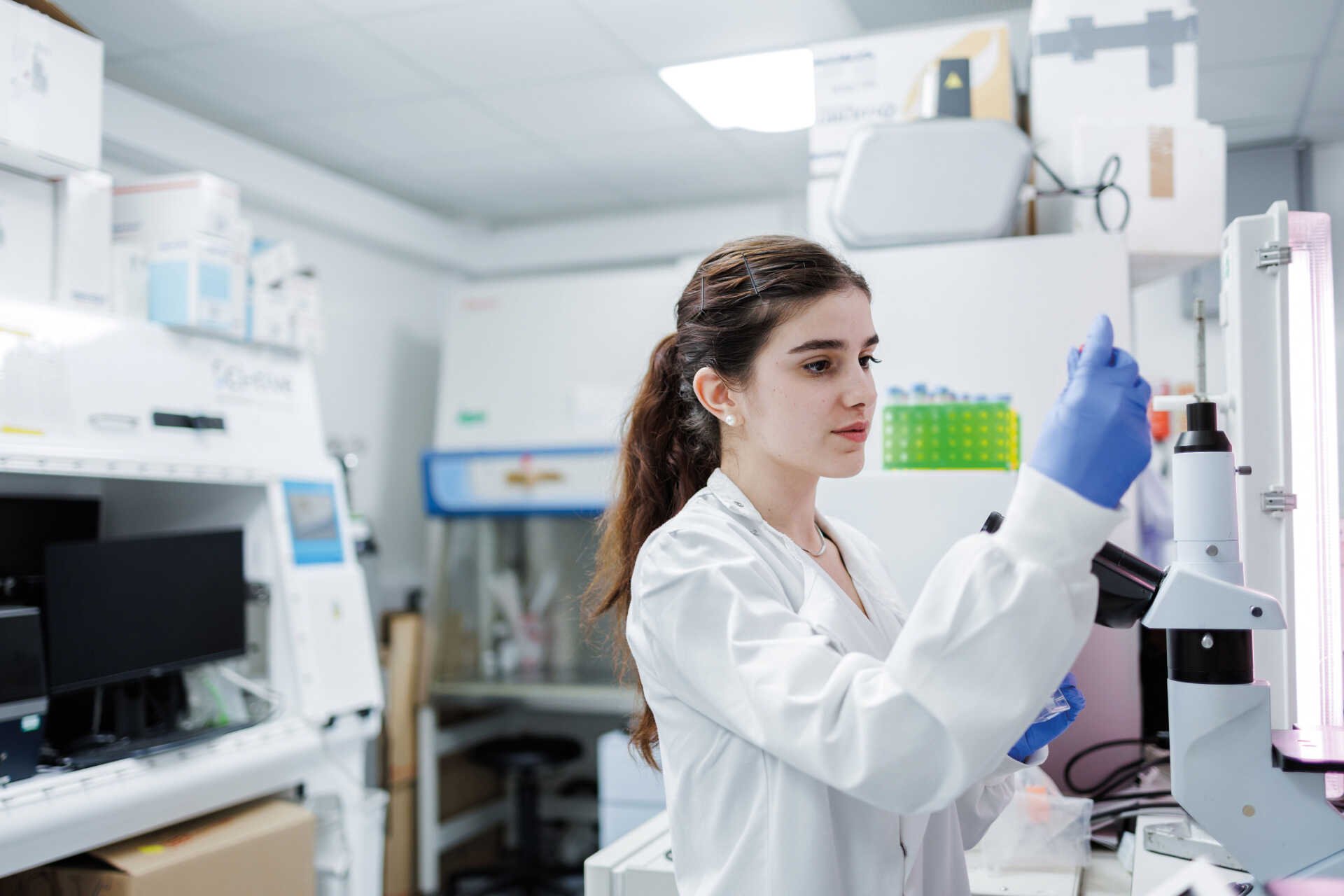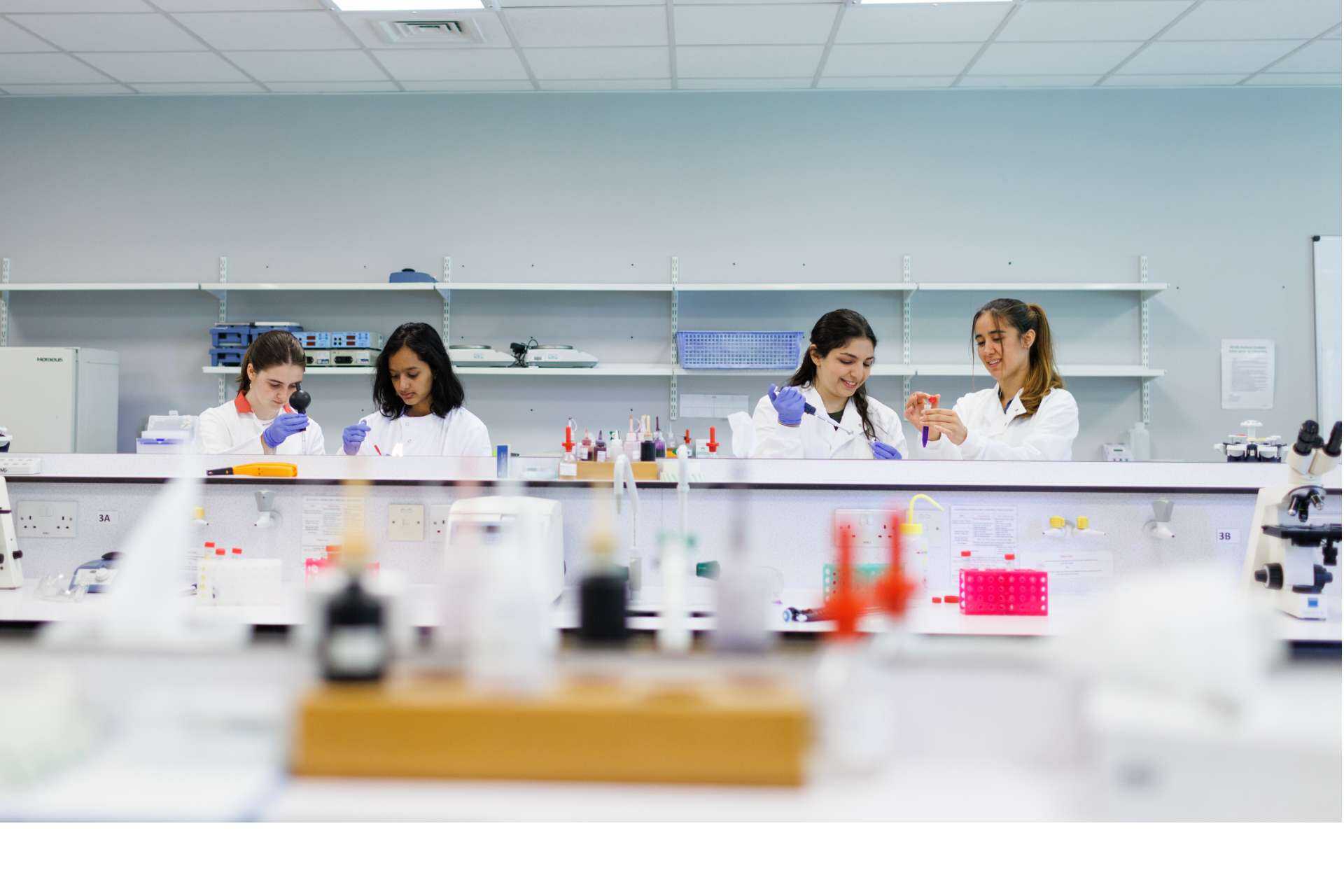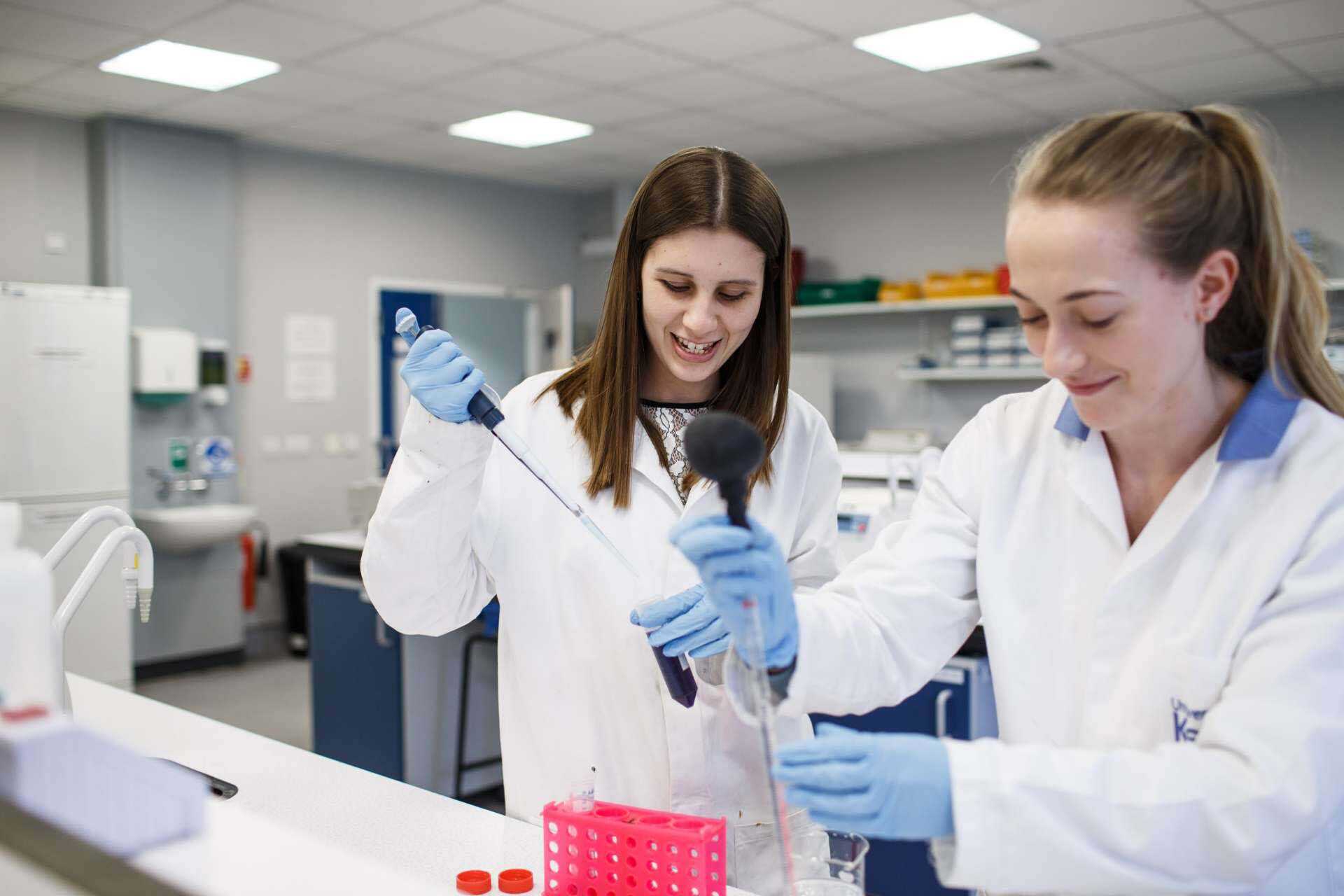What can I do with a degree in Physics?

The University of Kent’s Physics, Astronomy and Space Science programmes provide a strong foundation in the principles that underpin our understanding of the physical world and the wider universe. Graduates leave with deep subject knowledge, strong problem solving and data handling skills, and the ability to communicate complex ideas clearly. These attributes are valued across research, technology, space and aerospace industries, education, data science, and beyond. Get ideas and inspiration here before booking a one-to-one appointment with a careers adviser.
Careers in Physics and Astronomy
The following roles are an example of the types of job opportunities available to graduates of Physics, Astronomy or Space Science. Skills in data analysis, computational modelling, problem solving, logical reasoning and communication are highly valued by employers and can therefore be transferred to roles across many sectors.
Research scientist (Physics or Astronomy)
Conduct experimental, observational, or theoretical research to expand knowledge in areas such as astrophysics, quantum materials, or cosmology, often within universities, research institutes, or space agencies.
Aerospace or space industry engineer
Design, develop, and test spacecraft, satellites, and related technologies, applying physics principles to real-world engineering and space exploration challenges.
Data scientist / Analyst
Use advanced computational and statistical techniques to interpret complex datasets, providing insights that support decision-making in sectors such as technology, healthcare, business, and government.
Medical physicist
Apply physics knowledge in healthcare, particularly in medical imaging, radiotherapy, and the development of diagnostic technologies, ensuring safe and effective use of equipment in clinical settings.
Sound engineer
Design, record, and manipulates audio for music, film, live events, or broadcasting, ensuring high-quality sound production.
Alternative career paths
Network deployment engineer
Plan, install, and maintain communication networks, ensuring reliable connectivity for businesses and service providers.
Nuclear engineer
Design, operate, and oversee nuclear systems, reactors, and safety protocols for energy production or research.
Quantitative analyst
Use mathematical models and statistical techniques to analyse financial data and guide investment decisions.
Biomedical engineer
Apply engineering principles to design medical devices, diagnostic equipment, and healthcare solutions.
Software engineer
Develop, test, and maintain software applications or systems to meet technical and user requirements.
Where do University of Kent graduates work?
This is a selection of organisations that have employed University of Kent graduates in the past.
- BAE
- Airbus
- The Met Office
- Defence Science and Technology (UK government / defence sector)
- Rolls-Royce
- Siemens
- IBM
- NHS
There are many more possible employers in these and other industries.

Find a job
The Careers and Employability Service provides information and advice on job searching to University of Kent students and recent graduates. This includes a vacancy database advertising a range of graduate jobs, placement year and vacation work/internships.
Physics and Astronomy recruitment platforms
A leading UK site for physics and astronomy roles, featuring positions in academia, research, and industry.
A dedicated UK space sector job board offering roles in satellite technology, aerospace, and space policy.
THEunijobs – Physics & Astronomy
A trusted source for academic and research positions in physics and astronomy across UK universities. jobs.ac.uk – Physics & Astronomy
A comprehensive UK job board for academic, research, and technical roles in physical sciences.
Useful resources
Institute of Physics (IOP)
Membership offers networking, mentoring, job listings, funding, and career guidance.
Royal Astronomical Society (RAS)
Provides access to research, networking, events, and astronomy-specific career advice in the UK.
European Space Agency (ESA) Careers
Opportunities for students and graduates interested in space missions, research, and engineering roles.
arXiv.org
Preprints of cutting-edge research papers in astrophysics and astronomy.
NASA’s Exoplanet Archive
Open access to astronomical datasets useful for research projects.
Python for Scientists – Tutorials
Python is widely used for computational modelling, simulations, and data analysis in physics and astronomy.
AstroBetter
Career advice, research tips, and networking resources for astronomers.
Tips to stand out
- Engage in research and practical projects early Take advantage of Kent’s laboratory work, observational astronomy modules, and optional research projects to gain hands-on experience. Include these projects on your CV and LinkedIn to demonstrate technical skills and problem-solving abilities.
- Gain real-world experience Apply for Kent’s Year in Industry, internships, or part-time roles in labs, aerospace, space agencies, data analysis, or technology companies to develop workplace and professional skills.
- Develop computational and analytical skills Enhance your proficiency in programming (Python, MATLAB, or other relevant tools), data analysis, and modeling. These are highly valued by employers in research, technology, and finance sectors.
- Prepare for graduate recruitment assessments Practise numerical reasoning, logical reasoning, and situational judgement tests. Use resources such as Kent Careers’ access to Graduates First to build confidence for graduate schemes and competitive applications.
- Network with alumni and mentors Use LinkedIn and Kent’s Career Mentoring Scheme to connect with alumni and professionals working in academia, space, engineering, or data science. Seek advice and insights on career pathways and emerging opportunities.
- Engage with societies and leadership opportunities Join Kent societies such as the Physics Society, Astronomy & Space Society, or participate in initiatives like ASPIRE for leadership and enterprise experience. These activities develop transferable skills, teamwork, and can help you stand out in applications.

Year in industry
A year in industry can have a big impact on your employability. By gaining real-world experience and learning key skills in the workplace, and pairing these with the knowledge you gain on your degree, you can become a highly employable candidate in the labour market. The year can be based in the UK or abroad, including your home country if you're an international student, and contribute to your final degree. At The University of Kent, many courses include an optional year in industry between your second and final year, where you undertake graduate-level work related to your studies.
Further study
Some graduates may choose to pursue further education to specialise or transition into research roles or to gain professional certifications.